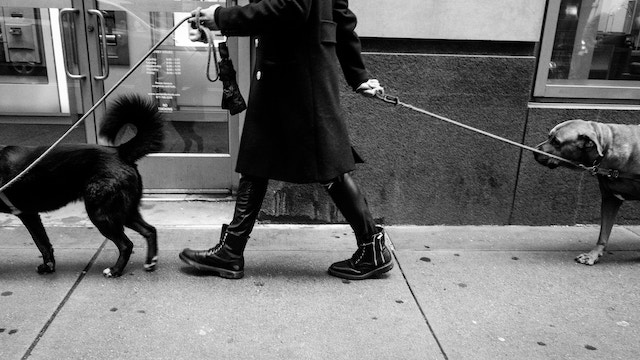
Never use passive voice.
Ever heard that advice before? It's a good rule of thumb and likely the best option if you're not sure what to do. But, like most rules, it's not without exceptions.
That's right. Despite what your teachers told you, there are some instances where you might actually want to use passive voice. In this article, we'll cover some notable examples.
But First, What Is Passive Voice?
It might seem complex at first but passive voice is simple. Consider this sentence:
Libby walked the dog.
Libby is the subject of this sentence because she's the one doing the verb (walking). The dog is the object because it's the one being acted upon (being walked). This sentence uses what's called the active voice, since the subject is clearly acting on the object. Now let's turn this sentence into the passive voice.
The dog was walked by Libby.
Here we've flipped the object and subject to create a passive sentence. To paraphrase the ProWritingAid editing tool, passive constructions like this make your writing less direct. They obscure the subject of the sentence and therefore muddle its meaning. Considering this, you can probably see why the passive voice is generally avoided.
But you probably already knew that. In this article, we're going to focus on the exceptions. Here they are:
Shifting Emphasis
Sentences written in the active voice almost always place the reader's focus on the subject. However, there are some instances when you might want to emphasize the object instead. Consider this example:
- A Visit From the Goon Squad is one of the best books I've ever read. Jennifer Egan wrote it.
In the first sentence, it feels like the reader's attention should be on the book. Yet in the second sentence, attention is diverted to the author. Now let's try passive voice.
- A Visit From the Goon Squad is one of the best books I've ever read. It was written by Jennifer Egan.
Here the reader's attention stays on the book in both sentences. That's because we've used passive voice in the second sentence to place emphasis on the object (the book) rather than the subject (the author). It's a subtle but effective technique when used sparingly.
Backloading Sentences
Like the last example, this is another that won't come up often. However, when it does, you'll be glad you had this trick in your back pocket. Consider this sentence:
- I made myself a tuna melt for lunch. I cooked it on the stove, searing each side to a pleasant golden brown. I stepped away for a moment to get the door, and when I came back, my sandwich had vanished. Then I saw the paw print on the table. My cat must've eaten my lunch.
This passage works fine enough. However, we spend the first three sentences building tension. The narrator put care into making lunch, and now it's gone. Just as we begin to wonder who took it, the first two words of the last sentence give it away. To delay the revelation until the last moment, we might instead try passive voice:
- Then I saw the paw print on the table. That's when I knew my sandwich had been eaten by my cat.
The same principle applies to comedy. That's because jokes are often funniest when the humor hits at the end of a sentence.
In Closing
Those are a few reasons writers might opt for passive voice. What other ways have you seen it done? Let us know in the comments below!

